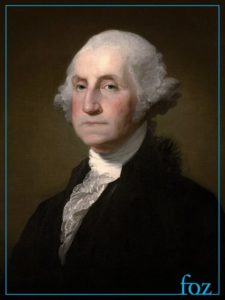“May the Children of the Stock of Abraham, who dwell in this land, continue to merit and enjoy the good will of the other Inhabitants; while everyone shall sit in safety under his own vine and fig tree,” – George Washington
On March 4, 1793, George Washington, a founding father and the first President of the United States of America, was sworn in for his second term as President of the United States. Washington was a true friend of the Jewish people, and proved it as the first President of the United States.
On August 17, 1790, Moses Seixas, the warden of Congregation Kahal Kadosh Yeshuat Israel, better known as the Hebrew Congregation of Newport, Rhode Island, penned an epistle to George Washington, welcoming the newly elected first president of the United States upon his visit to the city
While President Washington’s visit to Newport was largely ceremonial, Washington was making on behalf of the new national government created by the adoption of the Constitution in 1787. The City of Newport had historically been a good home to its Jewish residents, who numbered fewer than 500 at the time of Washington’s visit. The Jews of Newport looked to the new national government, and particularly to the enlightened president of the United States, to remove the last of the barriers to religious liberty and civil equality confronting American Jewry.
Moses Seixas’s letter on behalf of the Newport congregation–he described them as “the children of the Stock of Abraham”–expressed the Jewish community’s esteem for President Washington. The congregation expressed its pleasure that the God of Israel, who had protected King David, had also protected General Washington and that the same spirit which resided in the bosom of Daniel and allowed him to govern over the “Babylonish Empire” now rested upon Washington.
The Newport Christian community’s acceptance of Jewish worship was exemplary, although at this time individual Jews did not possess full voting and office holding rights as citizens of Rhode Island. According to Moses Seixas, at a time when the rest of world Jewry lived under the rule of monarchs, potentates, and despots, as American citizens the members of the congregation were part of a great experiment: a government “erected by the Majesty of the People” to which Newport Jewry could look to ensure their “invaluable rights as free citizens.”
Washington’s letter has had an enduring impact well beyond the Jewish community. Its words have been cited by Supreme Court justices in at least three religious liberty cases. “Bigotry,” Washington wrote, would be given “no sanction” and “persecution no assistance” by the federal government. Thank you, George Washington, for being a true Friend Of Zion.

